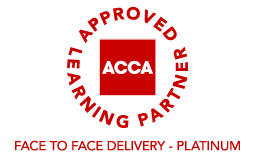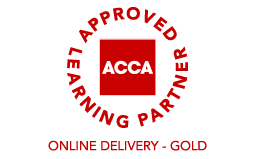Accountants are integral to the operations of any business. Their analytical skills, financial acumen and ability to interpret complex transactions and put them into orderly, coherent reports enable organizations to set realistic targets and drive growth.
For this reason, accountancy as a career path remains a lucrative and in-demand option. In fact, in the wake of Saudi Arabia’s Vision 2030, whose economic boost is sure to ripple across the UAE and the entire GCC region, the need for qualified, skilled accountants is forecasted to grow substantially in the coming years.
If you’re wondering how to become an accountant, read on to learn the educational requirements and how to advance your career in this highly competitive profession.
What Do You Need to Be an Accountant?
1. Earn the Right Accounting Qualifications
To start your accounting career, you first have to acquire the proper degrees and certifications. For this, you can take one of two routes:
A. A Bachelor’s Degree in Accounting
How many years of school to be an accountant? Usually, it takes from three to four years to complete a bachelor’s degree in accounting. During this time, you will take several courses that focus on financial analysis and reporting, auditing and tax law.
Although not an absolute must, many accountants choose to earn a bachelor’s degree because it’s considered a minimum requirement for advanced designations like the Certified Public Accountant (CPA) and Certified Management Accountant (CMA).
While a BSc degree for an accountant is certainly valuable, by itself, it’s not enough to distinguish you from other candidates in today’s job market. Employers’ criteria and favorability towards applicants with specialized certifications are increasing. As such, your aim needs to be jumpstarting your career with a designation that foots both the academic and the technical expertise bill.
B. An ACCA Certification
The Association of Chartered Certified Accountants (ACCA) certification is an internationally recognized qualification for accountants and finance professionals. It offers a comprehensive syllabus equivalent to a standard degree for accountants and equips you to work in all accounting disciplines.
To earn the ACCA designation, you must fulfill three requirements: Pass the ACCA exams, finish the Ethics and Professional Skills module, and obtain the necessary work experience.
The ACCA exams cover 13 papers across three levels, and they are as follows:
Level 1: Applied Knowledge Exams
-
Business and Technology (BT)
-
Financial Accounting (FA)
-
Management Accounting (MA)
Level 2: Applied Skills Exams
-
Corporate and Business Law (LW)
-
Taxation (TX)
-
Financial Reporting (FR)
-
Performance Management (PM)
-
Financial Management (FM)
-
Audit and Assurance (AA)
Level 3: Strategic Professional Exams
This module is divided into essential and optional exams.
Essentials Exams
-
Strategic Business Leader (SBL)
-
Strategic Business Reporting (SBR)
Options Module (Choose any two of these four)
-
Advanced Financial Management (AFM)
-
Advanced Performance Management (APM)
-
Advanced Taxation (ATX)
-
Advanced Audit and Assurance (AAA)
Given the extensive syllabus, most candidates prefer to enroll in ACCA training courses to provide them with structured study material and expert coaching and boost their chances of passing.
Finally, Like all other certifications, the ACCA does have minimum accountant education requirements for registration; however, they are not as rigorous compared to other designations. For example:
-
If you’re a high school leaver, you can still apply for the ACCA exams, but you’ll have to start with the Foundation-level certificate and work your way up from there.
-
If you are a school leaver with at least three GCSEs and two A Levels in five different subjects, including mathematics and English, or similar qualifications, you are eligible to begin your ACCA studies right away.
-
If you have a bachelor’s degree or relevant qualifications to the ACCA syllabus, you can be granted certain exemptions to begin your studies at a level that corresponds to your knowledge and prior training. In some cases, some candidates claimed as many as nine exam exemptions.
2. Pick Your Specialty
Accounting careers are typically split into two main areas: financial accounting and management accounting.
The primary difference between the two is that financial accounting focuses on external reporting to parties such as investors, stakeholders, regulators and tax authorities, while management accounting is more of an internal function that helps decision-makers assess a business’s performance and set strategic goals.
With both specialties, however, there are several sub-disciplines and roles you can specialize in, such as:
-
Taxation
-
Auditing
-
Forensic accounting
-
Business recovery and insolvency
-
Corporate Finance
3. Obtain Employment and Relevant Work Experience
As much as academic qualifications and certifications matter, employers will always be on the lookout for candidates with extensive hands-on accountancy experience. However, how many years of accounting experience will depend on the employer and the role they seek to fill.
You can start while studying for your accounting degree or certification by taking up part-time jobs or roles as a trainee accountant. Once you have enough expertise, you’ll be able to find more special positions in firms across different sectors and fulfill the work experience criteria that are usually mandated for advanced designations.
Start your Accounting Career
A career in accountancy is still considered a wise choice, especially in challenging economic times. It offers long-term prospects and the chance to gain a professional qualification that opens doors across different sectors and countries.
Contact us today to learn more about our accounting and financial training courses and take the first step towards a successful and rewarding career.



